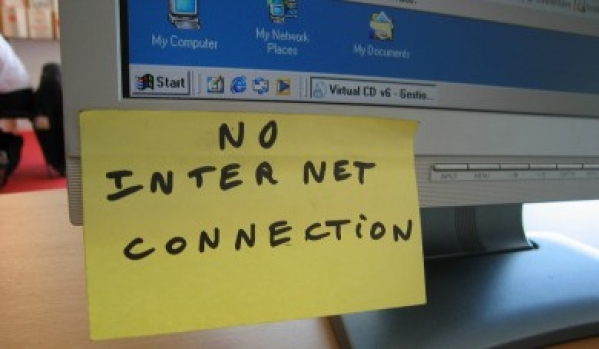I know we have talked about a lot of things to do in order to prepare for a potential economic or societal collapse. Also what to do and have stocked in a black/brown out or a long term power outage.Well there is one thing I have never mentioned earlier that I feel I should have. The internet. Knowledge. Information. Know how. If you want to learn about something in today’s day and age you ask someone knowledgeable or look it up on the internet. How many of you have a library of information in your own home not counting your internet access?

None of you I bet. Why not? I know there are more important things to worry about such as food and water in the event of disaster but there may be a day when you have a vital question (during a prolonged power outage) and need to look something up over the internet. If anything, in the event of a collapse information such as this may be more important than ever. We take this for granted now, this amazing convenience. I started to think about archiving a few popular sites for offline use and did a little research as well that I plan on sharing in a moment. If you take proper precautions to prepare your home for a long term power outage or worse, then there is no reason why you cant turn your computer on for a half hour to an hour and draw a few extra watts of power once in a while to access information. But the internet could be long gone. What would you do without the information super highway? Well you can archive a few important sites for backup.
If I had to pick one site to back up and one site only it would be the Wikipedia website. Countless articles are on there. Pretty much every topic you can search for will be found in Wikipedia. It is an actual library of information. I literally just searched for “how to stitch a wound ” in Google and this link came up: http://en.wikipedia.org/wiki/Surgical_suture and surprise, its on Wikipedia. Pretty much everything you search for in Google will in one way lead to the Wikipedia. I would love to have an offline archive of the entire Wikipedia easily accessed. Do you know you can have the entire Wikipedia on a flash drive? From there it would be as simple as plugging your USB flash drive into a USB port and browsing the entire DUMP of the Wikipedia website. The site its self is huge. Maybe one of the biggest on the internet and a mirror is no easy task.
There are many methods of doing this and I will revise this page when I get more time but for now we will teach you one of the easier methods. Using a program called Kiwix you can archive all of the Wikipedia and browse as needed. Here is a quote directly from their site.
Kiwix is an offline reader for web content. It’s a software especially intended to make Wikipedia available without internet, but it is potentially suitable for all HTML content. Kiwix supports the ZIM format, a highly compressed open format with additional meta-data.
Kiwix is a free software, that means you can freely copy, modify and spread it.
Kiwix is mostly installed in schools, universities and libraries which can’t afford a broadband Internet access. Kiwix being a lot faster than the Internet, it’s also used by many institutions to save bandwidth and reader’s time. But many people use Kiwix for their own private purpose. That’s the case, for example, of persons suffering from censorship or prisoners.
Kiwix is really easy to use. It provides a range of features which make the usage comfortable:
- Full text search engine
- Bookmarks & Notes
- HTTP server
- PDF/HTML export
- User interface in more than 80 languages
- Tabs navigation
- Integrated content manager and downloader
- More features…
Kiwix is a pretty small and efficient software. You can perfectly use it with small or old computers. It runs on a big range of operating systems and on the three main PC operating systems: Microsoft Windows, Apple Mac OSX and GNU/Linux distributions.
Its as simple as downloading the latest .zim package for various editions of Wikipedia and can be downloaded from kiwix.org using any download manager. Its an 18.2 gigabyte file so make sure you have a steady internet connection as it takes a long time to download. Who knows, there could be a day and time when it you need it and wont have it. Why not be ahead of the curve? The only downside is that there are no images with this dump.
If anyone is interested I may make/compile something in the future even easier to view (a pure HTML dump with images) and freely distribute it on our site. I hope this information helps.
 Survive Our Collapse Building Self-Reliance in an Uncertain World
Survive Our Collapse Building Self-Reliance in an Uncertain World





Thanks for the info…
Thank you for directing me to Kiwix. I am eager to build an expansive digital archive! Please do put together some informational packets of your own. I would appreciate them.
Thanks. I wrote this article a long time ago but it all still holds true.